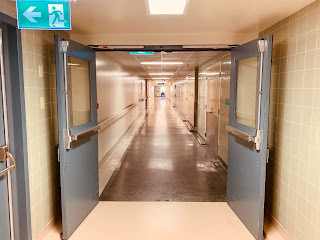Did Halting In-Person Visits During Covid-19 Affect Knee Replacement Outcomes at Hospital for Special Surgery?

At Hospital for Special Surgery (HSS), we set out to evaluate outcomes for recent knee replacement patients when nonessential in-person doctor visits and physical therapy were halted in March 2020 due to the pandemic. Our thought-provoking study found that the shutdown did not lead to a higher complication rate, nor did it affect patient-reported outcomes after surgery. Our study appeared online ahead of print in the Archives of Orthopaedic and Trauma Surgery . Elective, nonessential orthopedic care, including in-person office visits and physical therapy, was halted on March 16, 2020 at the onset of the COVID-19 surge in New York City. At that time, HSS rapidly expanded its telehealth and tele-rehabilitation services so patients could receive their care remotely, including post-operative visits and physical therapy. Our study aimed to assess complications during the first 90 days following surgery and patient-reported outcomes within one year of surgery. We identified 624 patients...


